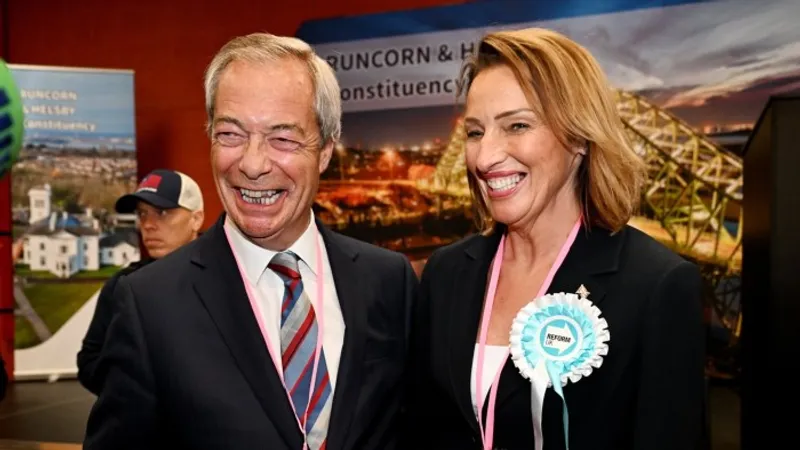London’s political scene got a jolt this week as Reform UK, the upstart party with a knack for shaking things up, carved out surprising gains in England’s local elections. The results, trickling in through Friday, May 2, 2025, left Labour leader Keir Starmer under fire, with allies and critics alike urging him to ditch the earplugs and tune into voters’ frustrations.
Reform’s wins weren’t just a blip. In Runcorn and Helsby, a ward in Cheshire, the party edged out Labour by a razor-thin six votes to claim a council seat, a result confirmed by Halton Borough Council’s official tallies. Across the map, Reform notched up victories in places like Lincolnshire and Hull, where mayoral contests saw their candidates ride a wave of discontent to upset Labour’s hopes. The Electoral Commission’s early data showed Reform doubling its seat count from last year in some regions, a leap that’s got Westminster’s coffee shops buzzing.
Starmer, who’s been steering Labour through choppy waters since taking the helm, caught flak from one of his own. A Labour mayor, fresh off a win in a northern stronghold, didn’t mince words at a press conference on May 1. He warned that the party’s grip is slipping because it’s not hearing the grumbles on the ground—think rising costs, creaking public services, and a general fed-up vibe. The mayor’s blunt advice: start listening, or watch voters bolt.
Reform’s surge isn’t out of nowhere. Official vote breakdowns from councils like Lincolnshire show their campaign—hammering on immigration controls and tax cuts—hit a nerve in areas Labour once called home. In Hull, Reform’s mayoral candidate clinched a win by nearly 1,200 votes, per the city council’s certified results, a stat that left Labour strategists staring at their spreadsheets in disbelief.
Starmer’s team, hunkered down in Westminster, issued a statement on May 2 acknowledging the “tough night” but pointing to Labour’s own gains—1,100 council seats and 13 mayoral races, according to the Local Government Association’s running count. Still, the sting of Reform’s breakthroughs was hard to shrug off. Back in February, a YouGov poll for a major outlet had already flagged trouble, showing Reform neck-and-neck with Labour in some working-class towns. That warning’s looking less like a fluke now.
The numbers tell a stark story. In 39 councils holding elections, Labour lost ground in key wards—down 8% in vote share in some northern seats compared to 2024, per early BBC projections. Reform, meanwhile, scooped up 15% of the vote in contested areas, a jump from single digits a year ago. These aren’t guesses; they’re pulled straight from council websites and verified returns.
For Starmer, the heat’s on. His next moves—maybe a policy pivot or a charm offensive—will need to cut through the noise. Reform’s not slowing down, and voters aren’t waiting for Labour to catch up. The election dust is still settling, but one thing’s clear: the message from the ballot box is loud, and it’s not polite.
As of May 2, 2025, Labour holds 1,100 council seats across England, while Reform UK has secured 87 seats in the latest local elections. The Electoral Commission reports a 32% voter turnout, with final results due by May 4.

